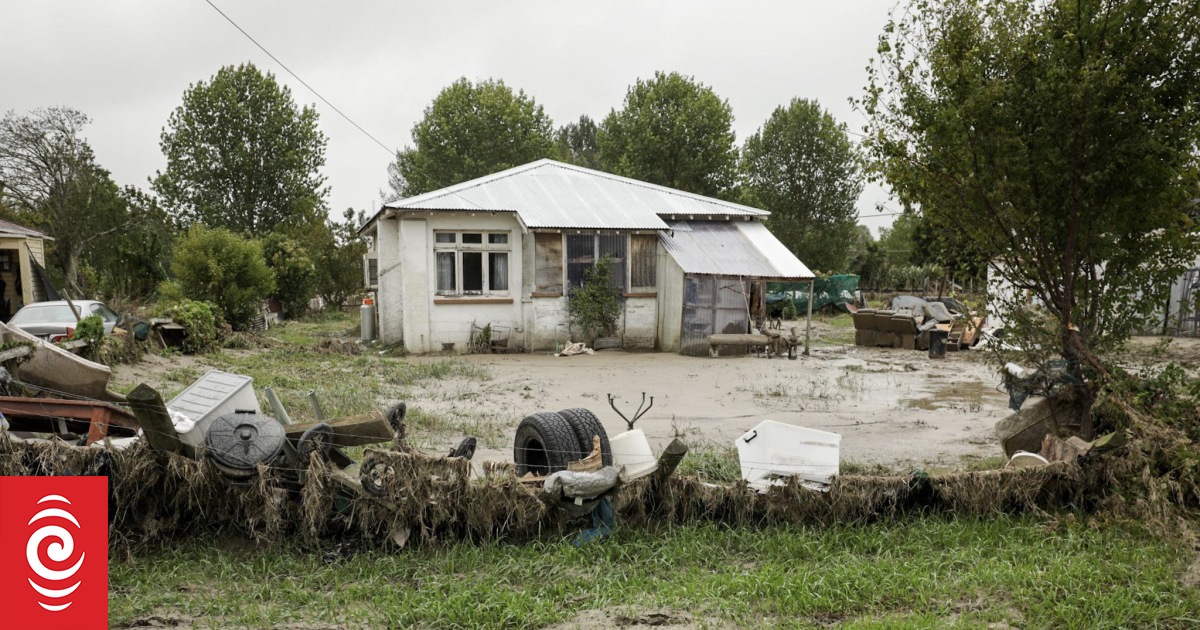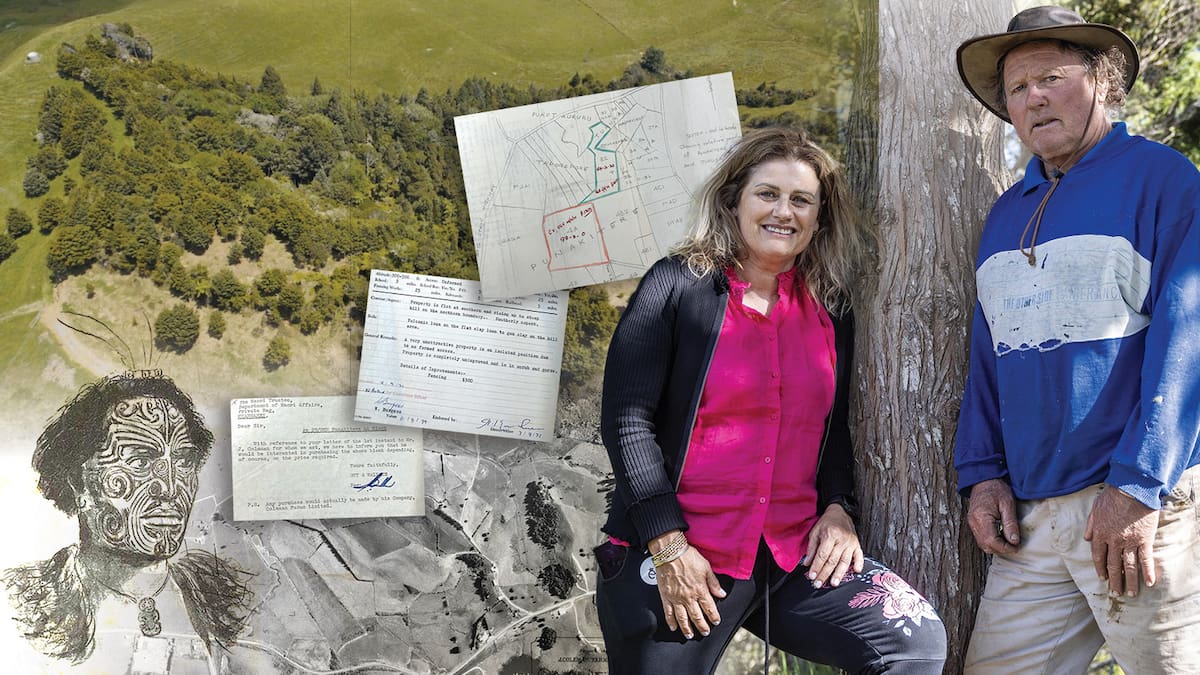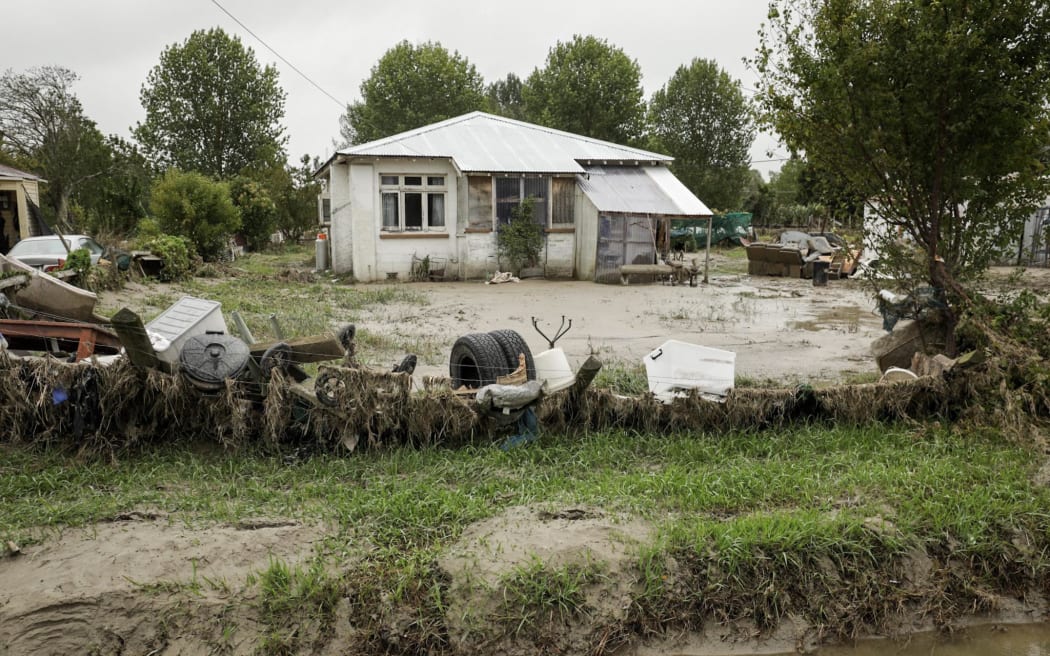
Flood waters surround a Wairoa house days after Cyclone Gabrielle wreaked massive damage across many communities
Photo: Nathan McKinnon
Climate and health experts warn storms like Cyclone Gabrielle will have increasingly devastating public health consequences as the globe warms.
In an editorial in the New Zealand Medical Journal the authors, including Māori public health expert Rhys Jones, said floodwaters cause spikes in infectious diseases and gastro illnesses.
“It is too soon to determine the full health losses, but it is likely they will be substantial,” they wrote.

Dr Rhys Jones is an associate professor at the University of Auckland
Photo: Supplied
“Previous research in Aotearoa demonstrated that with every heavy rainfall event comes a surge in hospital admissions for children with gastroenteritis.
“Hawke’s Bay is already seeing an increase in cases of leptospirosis resulting from contact with flood waters on livestock farms.”
The other authors are University of Otago environmental health associate professor Alex Macmillan and University of Auckland epidemiologist and public health medicine specialist Alistair Woodward.
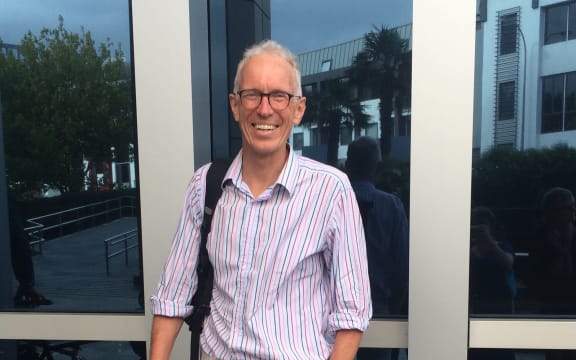
Public health specialist professor Alistair Woodward
Photo: Supplied/ Alistair Woodward
They said deprived populations, like those in the Hawke’s Bay town of Wairoa, could become sickened as they had little option but to continue to live in damaged properties.
Storms exacerbate the already unacceptable health burden experienced by Māori, Pasifika and other structurally oppressed communities.

This Te Karaka house in Tai Rāwhiti was flooded with mud during Cyclone Gabrielle.
Photo: Nathan McKinnon
They said research showed flooding events could cause PTSD (post-traumatic stress disorder) and other poor mental health outcomes, but the effects were often hidden and underestimated.
Climate change would only make severe storms more likely, and the authors said it showed that the warming globe increasingly made climate change a health issue.
The editorial said land use decisions – increasing numbers of homes on flood plains, clearing native forests for farming and planting of exotic plantation forest – had increased susceptibility to flood events and are a direct legacy of settler colonialism in Aotearoa.
“The associated marginalisation of Indigenous knowledges and disruption of Māori relationships with the whenua has not only under-pinned current risks, but further undermines our ability to prevent and manage worsening threats.”
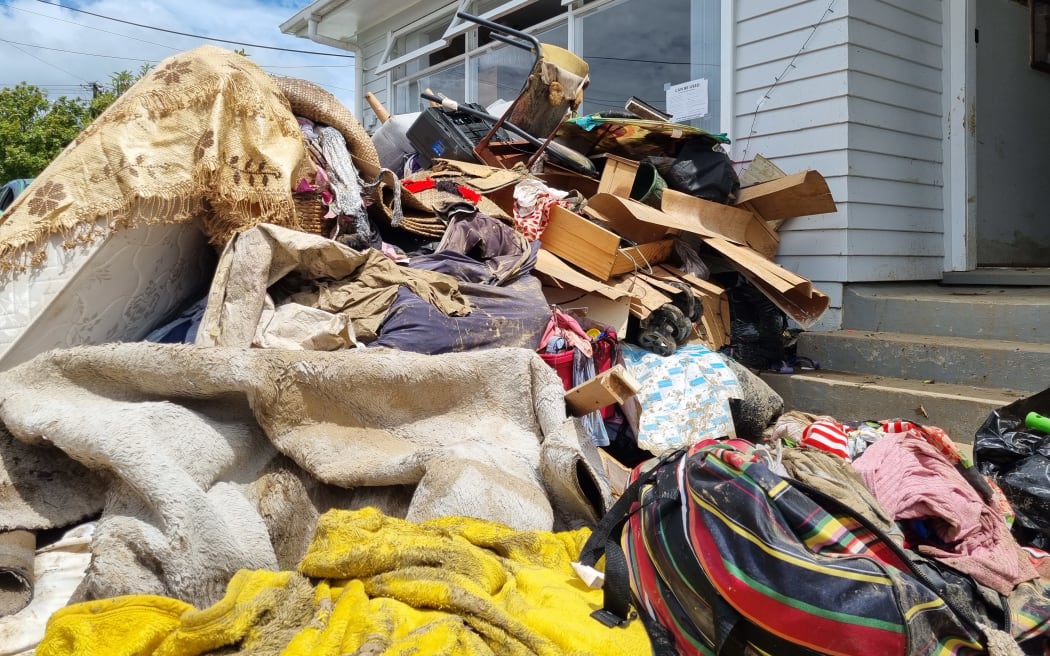
Sodden furnishings and belongings pulled out of a West Auckland home after the anniversary weekend floods.
Photo: RNZ / Soumya Bhamidipati
They write that Māori worldviews and knowledge could help develop healthy responses to climate change.
“Colonial economic values, governance systems and living practices have driven the climate crisis and underpin our susceptibility to the ensuing storms,” the article said.
“We must disinvest from these systems and instead centre Indigenous knowledges and restoration of relationships to address the fundamental causes of public health and ecological crises.”

